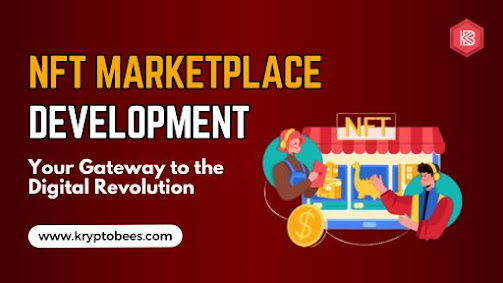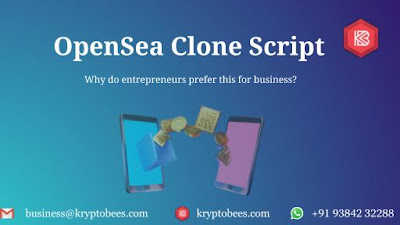NFT Marketplace Development: Your Gateway to the Digital Revolution
In recent years, the digital world has witnessed a significant transformation with the rise of NFTs. These unique digital assets have revolutionized the way we perceive ownership and value in the virtual realm. Entrepreneurs, in particular, have been captivated by the immense potential that NFTs hold. Here, we will delve into the intricacies of NFT marketplace development, shedding light on the process and the benefits it brings to entrepreneurs.
What is an NFT Marketplace?
Before we delve into the development aspect, let's first understand what an NFT marketplace is. Simply put, an NFT marketplace is an online platform where individuals can buy, sell, and trade NFTs. Think of it as a digital marketplace for unique digital assets. These assets can range from digital art, music, videos, virtual real estate, collectibles, and more. NFT marketplaces have gained immense popularity due to their ability to provide a secure and transparent environment for buying, selling, and showcasing NFTs.
The Development Process of the NFT Marketplace
Developing an NFT marketplace requires careful planning and execution to ensure a smooth and user-friendly experience. Let's walk through the key steps involved in the development process:
Conceptualization: The first step is to define the scope and objectives of your NFT marketplace. What type of NFTs will be traded? Will it be a general marketplace or cater to a specific niche? These questions will help you lay the foundation for your marketplace.
Design and User Experience: The design and user experience of your NFT marketplace play a crucial role in attracting and retaining users. A clean and intuitive interface, coupled with seamless navigation, is essential. Users should be able to easily browse through NFT collections, view detailed information, and make purchases effortlessly.
Smart Contract Development: Smart contracts are the foundation for each NFT marketplace. These self-executing contracts ensure the authenticity and uniqueness of NFTs. Developing and deploying smart contracts on a blockchain network, such as Ethereum, is a critical step in the development process.
Wallet Integration: To enable users to buy, sell, and store NFTs, wallet integration is necessary. Integrating popular cryptocurrency wallets, such as MetaMask, allows users to securely manage their digital assets within the marketplace.
Backend Development: The development of a robust backend infrastructure is crucial for handling transactions, user authentication, and data management. Implementing scalable and secure server architecture ensures a seamless user experience even during peak trading periods.
Testing and Security: Thorough testing is paramount to identify and fix any potential vulnerabilities or bugs. Implementing robust security measures, such as encryption and two-factor authentication, helps safeguard user data and prevent unauthorized access.
Launch and Marketing: Once development and testing are complete, it's time to launch your NFT marketplace. Effective marketing strategies, such as influencer collaborations, social media campaigns, and targeted advertisements, can help generate buzz and attract a wide user base.
Benefits for Entrepreneurs
Now that we've covered the development process, let's explore the benefits that NFT marketplace development brings to entrepreneurs:
Revenue Generation: NFT marketplaces provide entrepreneurs with an opportunity to generate revenue through transaction fees and commissions. As the marketplace gains popularity, these revenue streams can become substantial.
Global Reach: By embracing the digital nature of NFTs, entrepreneurs can tap into a global market. NFTs transcend geographical boundaries, allowing entrepreneurs to reach a vast audience of potential buyers and collectors.
Disintermediation: NFT marketplaces eliminate the need for intermediaries, such as galleries or auction houses, enabling direct interactions between artists, creators, and buyers. This empowers entrepreneurs to have direct control over their creations and financial transactions.
Brand Building: Launching an NFT marketplace can enhance an entrepreneur's brand image and reputation. By supporting emerging artists and creators, entrepreneurs can position themselves as champions of digital innovation and creativity.
Conclusion
NFT marketplace development presents a unique opportunity for entrepreneurs to leverage the power of blockchain technology and digital assets. By creating a secure and user-friendly platform, entrepreneurs can tap into the growing demand for NFTs and unlock new revenue streams. As the digital landscape continues to evolve, NFT marketplaces play a significant role in shaping the future of the creative economy.




Comments
Post a Comment